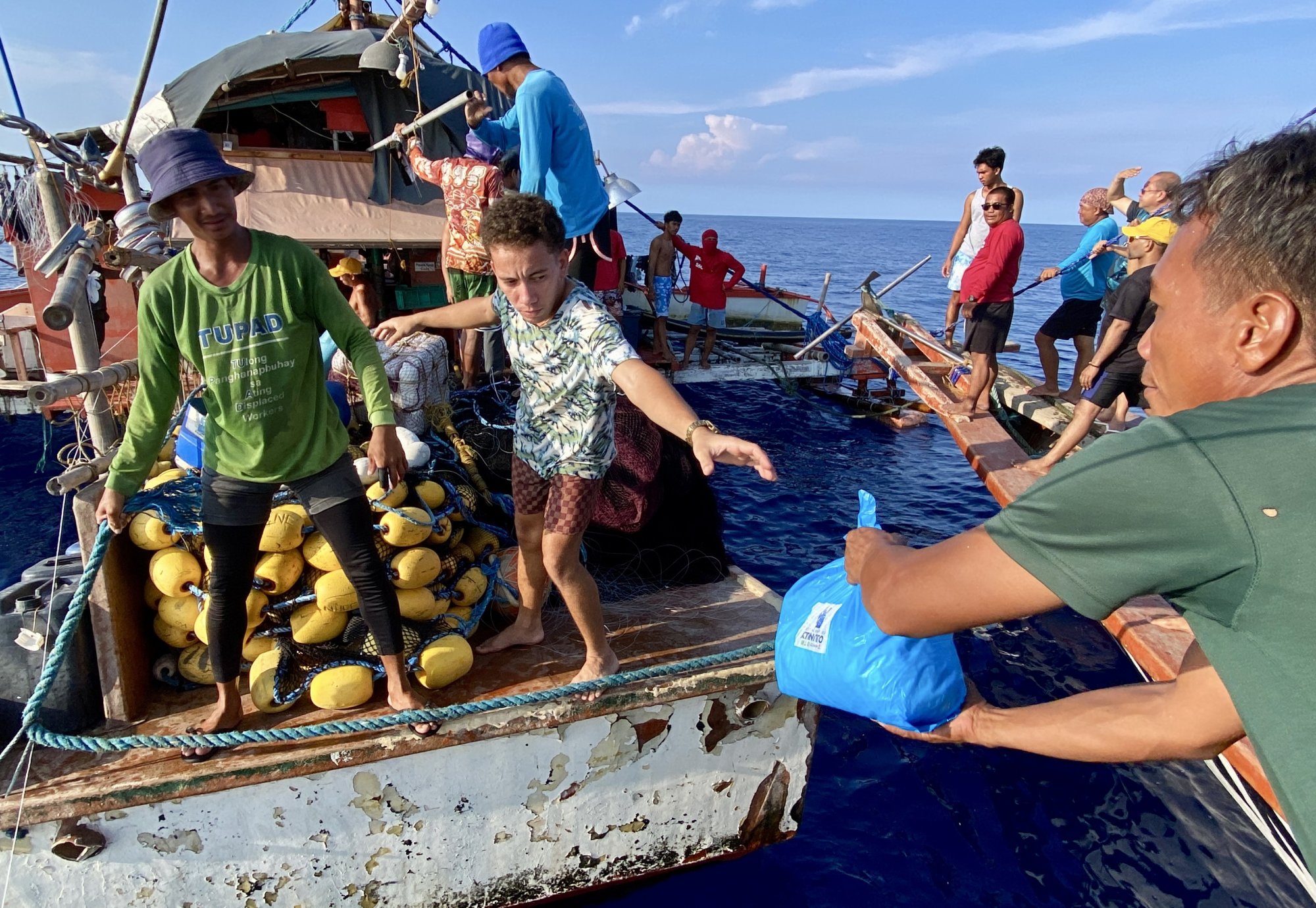In a statement on Monday, the Department of Foreign Affairs called on China to “cease and desist from the conduct of illegal actions that violate the Philippines’ sovereignty, sovereign rights, and jurisdiction”.
The ministry also asked Beijing to “comply with its obligations under international law,” particularly the “final and binding” 2016 arbitral award that ruled in favour of Manila and found China’s assertions over the waterway have no legal basis.
The economic giant, which claims most of the South China Sea, has refused to accept the ruling.
Dindo Manhit, president of Manila-based think tank Stratbase ADR Institute, said the fishing ban aligned with China’s broader pattern of “coercive actions in reinforcing its claims among disputed waters”.
“The move is to undermine the Philippines’ authority over its own rightful territory as China continues to contest the rules-based international order,” Manhit said.
The Philippines has repeatedly lodged diplomatic protests over China’s decision, which experts say was done in a bid to uphold the country’s rights under international law, even if China is unlikely to respond to the complaints.
“This means that we’re putting on the record that we do not recognise the ban. We also must encourage other claimants to do the same,” said Sherwin Ona, associate professor at De La Salle University’s political science department.
Foreign policy and security analyst Lucio Pitlo III said non-Chinese fishers had been able to ply the waters in the past without getting apprehended since China began enforcing the ban in 1999.
Yet, whether this would change this year remains to be seen, according to the expert.
Beijing announced the fishing freeze after declaring it would empower coastguard officials to detain foreigners “trespassing” in the South China Sea.
The notification came after a Filipino convoy of boats sailed to distribute fuel and supplies to fishermen near the China-held Scarborough Shoal on May 15.
“Instead of a unilateral imposition, a joint or coordinated fishing ban may get more regional buy-in,” Pitlo said.
Philippine navy spokesman Commodore Ray Vincent Trinidad, meanwhile, said on Tuesday patrols had been stepped up and additional vessels deployed to monitor and protect fishermen in the West Philippine Sea, Manila’s term for parts of the South China Sea that are within its exclusive economic zone.
“The Philippine navy does not recognise this provocative statement nor will we be deterred in performing our mandate of securing the welfare of Filipinos wherever he or she is – on land or on sea,” Trinidad told reporters.
Civilian complications
Defence analyst VK Parada said China’s latest actions were meant to scare off civilian vessels from entering disputed waters, adding it was mostly concerned with the effects of rising non-military involvement in activities in the South China Sea.
“Threatening to apprehend violators means that China recognises the danger increasing civilian involvement poses to its current approach in the South China Sea,” he said.
“China knows it can’t utilise the same level of aggression it’s been using with the Philippine navy and coastguard against Filipino fisherfolk, so it’s hoping to prevent their involvement outright.”
While the ban is expected to further deepen tensions, Beijing is unlikely to court greater international backlash by detaining Filipino civilians, observers say.
“The active participation of civil society entails higher reputational costs on the part of China, but also greater risk of untoward incidents that could lead to property damage, or worse, loss of life. That’s something Beijing and Manila alike are hoping to avoid,” Parada said.
He added Beijing’s present stance also raised many questions about diplomatic and security implications, such as “how much force” China was willing to use, if it did proceed to apprehend violators, and where detainees would be held.

Experts urged the Philippines to exercise caution in its response in case China follows through on its threats.
“If China does blink by arresting fishers, then the Philippines would have no choice but to escalate the picture through rescue operations. My take is that the Philippines must talk of rationality to the Chinese counterparts of that doomsday scenario that both sides would not want,” Joshua Espeña, vice-president of the International Development and Security Cooperation, said.
Though the Philippines is not the only claimant to areas within the South China Sea, experts believe that Beijing views Manila as a weak player that can be parried with intimidation tactics.
“While that might be true with the previous administration, the current Marcos government is different, whereby Manila is adopting a whole-of-society approach to the mix,” Espeña said.
Parada said Beijing has been “exerting far less pressure” on Hanoi than it has on Manila because it “begrudgingly respects strength and Vietnamese forces constitute a more credible threat to China than the Philippines by itself”.
De La Salle University’s Ona said the Philippines should go beyond exposing China’s activities in the waterway by providing stronger support for small-scale fishermen through intensified patrols and the assistance of local government units.
“Many of them rely on daily catch for subsistence, which will significantly affect households in terms of income. We need to protect our fishermen by escorting them and providing assistance,” he said.
As tensions continue to simmer on the high seas, Filipino fishermen have vowed to ignore China’s “baseless” ban.
“No foreign entity has the right to prohibit us from fishing in our own territories,” Joey Marabe, coordinator of fishing group Pamalakaya-Zambales, said.


